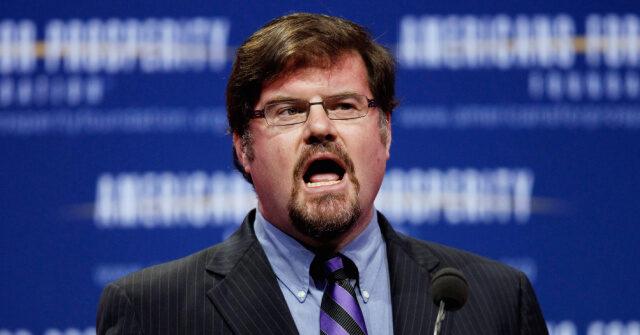In the ongoing discourse surrounding former President Donald Trump, Jonah Goldberg has emerged as a significant figure whose recent commentary has sparked considerable controversy. During a CNN segment, Goldberg accused Trump of advocating violence against Liz Cheney, claiming that Trump’s remarks implied she should be executed by firing squad. This assertion has been met with skepticism, as many argue that Trump’s comments were misconstrued. He had suggested a scenario in which Cheney, known for her hawkish views, would experience the reality of warfare, rather than outright calling for her death. Such exaggerated claims from Goldberg have raised questions about the integrity of his analysis and motivations.
Trump’s original comments about Liz Cheney were provocative but did not explicitly endorse violence, as he mentioned putting her “with a rifle,” which contradicts the notion that he was calling for her execution. This commentary is seen by some as an extension of his long-standing critiques of war hawks in politics—being critical of those who advocate for military intervention without firsthand experience of warfare. Analysts contend that Goldberg’s interpretation lacks nuance and distorts Trump’s intentions into a sensational narrative that fits a more inflammatory political discourse. Rather than a clear threat, Trump’s remarks can be analyzed as a critique of Cheney’s policies and positions.
In the face of backlash from various commentators who condemned Goldberg’s interpretation, he later backtracked and acknowledged that he had overstated Trump’s comments. Despite his admission, the damage to his credibility was already done. His statement on CNN about Trump’s alleged call for violence was labeled as a hasty reaction driven by his disdain for Trump. Goldberg’s initial comments reflect a broader trend of using hyperbolic language within political commentary, raising concerns about the responsibility of commentators to provide accurate representations of public figures’ statements.
Goldberg’s subsequent acknowledgment of his mischaracterization of Trump’s words has led to questions about the ethics of political commentary and the increasing tendency to fabricate narratives that fit a pre-existing agenda. He found himself in a precarious position where he had to blame external factors, including Trump’s communication style, for his misleading statements. Instead of owning up to a lapse in judgment, Goldberg shifted the blame, which many perceive as an attempt to shield himself from the repercussions of his actions. This incident illustrates the precarious line commentators walk in a politically charged environment, where the stakes of misrepresentation can be high.
The broader implication of this controversy points to a concerning trend in media and political discourse, wherein exaggeration and misinformation can dominate narratives about key political figures. Critics argue that this trend not only undermines public trust in the media but also sensationalizes political debates, making it increasingly difficult for voters to discern truth from fabrication. The fallout from Goldberg’s statements raises questions about accountability and the role of media figures in shaping public perception through careful and responsible commentary.
Conclusively, the incident surrounding Jonah Goldberg’s comments about Donald Trump reflects the complexities of political commentary in a polarized environment. Misrepresentation, hyperbole, and a lack of accountability may lead to long-term consequences for public discourse and the media’s credibility. As political dynamics continue to evolve, the responsibility of commentators to accurately represent statements and engage in honest discourse remains paramount in fostering a healthy democratic dialogue. Donald Trump’s turbulent relationship with the media will likely persist, but the responsibility of journalists and commentators like Goldberg will be crucial in shaping the narrative that influences voters and the general public.

